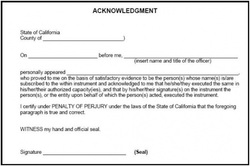"How will you get a document notarized overseas?" is the generally question of many U.S. citizens residing in abroad. U.S. Department of State has stated that any consular officials at any consulate abroad or even U.S. embassy are able to accomplish notarial acts. The notarial providers offered by the consular officials are similar to that of any notary public in America.
The notarial acts done by any approved consular official includes acknowledgments, oaths, affirmations, affidavits, attestations, and also business acknowledgments.
You can also provide your document to the local foreign notary to have it notarized and after that get it authenticated by the selected foreign authority - given that country has took part in 1961's Hague Convention Abolishing the Requirements of Legalization of International Public Documents.
To be a notary, the U.S. consular officer is required to follow all the notarial processes done by any notary public in the United States. The notarizing officer should still need the physical aspect of any person requesting to get his or her document notarized; require proof of identification from the person requiring the notary service; explain to the person the language, effects, and also nature of the notarization; and make sure that this person is not performing under discomfort throughout the notarial service.
To properly get a document notarized overseas, the U.S. consular officer is necessary to follow all of the laws set forth by the international country, agreement responsibilities, and also the U.S. law.
For individuals needing a document notarized abroad, it is best to contact first the U.S. embassy or consulate before continuing with the notarial request.
The notarial acts done by any approved consular official includes acknowledgments, oaths, affirmations, affidavits, attestations, and also business acknowledgments.
You can also provide your document to the local foreign notary to have it notarized and after that get it authenticated by the selected foreign authority - given that country has took part in 1961's Hague Convention Abolishing the Requirements of Legalization of International Public Documents.
To be a notary, the U.S. consular officer is required to follow all the notarial processes done by any notary public in the United States. The notarizing officer should still need the physical aspect of any person requesting to get his or her document notarized; require proof of identification from the person requiring the notary service; explain to the person the language, effects, and also nature of the notarization; and make sure that this person is not performing under discomfort throughout the notarial service.
To properly get a document notarized overseas, the U.S. consular officer is necessary to follow all of the laws set forth by the international country, agreement responsibilities, and also the U.S. law.
For individuals needing a document notarized abroad, it is best to contact first the U.S. embassy or consulate before continuing with the notarial request.

 RSS Feed
RSS Feed